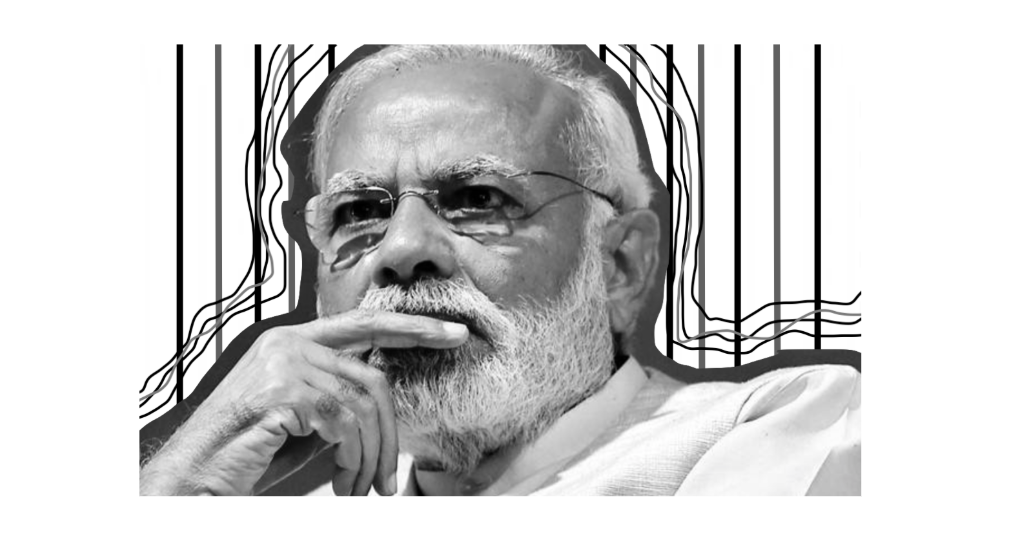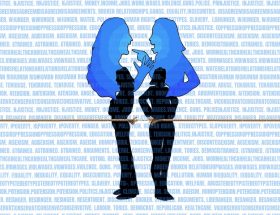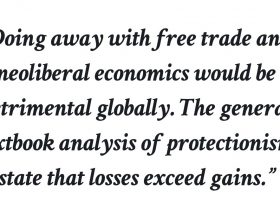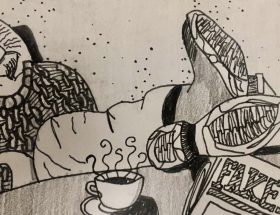The world’s biggest democratic exercise has begun as India votes to elect a new Lok Sabha or Lower House of Parliament from the 11th April to the 19th of May. An approximate of 900 million voters are set to decide the fate of Prime Minister Narendra Modi’s NDA government.
Political pundits assert that, “this election is a referendum on PM Narendra Modi”. They claim this is evident as the opposition campaign is entirely focused on one man and his actions. However, one has to look deeper into this claim, why is this all about ‘one man and his actions’ and why can’t it be about ‘the government and its actions’?
In the last five years of the ‘Modi Government’, India has witnessed an authoritarian regime in the center creating an environment of intolerance and fear among its people. The propagation of its venomous far-right ideology of ‘Hindutva’, a dominant form of Hindu nationalism has divided India along religious and ethnic lines and has threatened the secular fabric of the country. Minorities are lynched and even killed for eating beef or even trading cows, for cows are considered to be holy in Hinduism. Dalits who consist of the lowest strata of society are tortured and exploited. The recent jingoism adopted by PM Modi and his party have resulted in the dangerous politicization of the army. Anyone who questions PM Modi’s actions or his Governments policies is labeled as an ‘anti-national’ and other such derogatory terms.
On one side, these actions polarize the country and on the other they helps to conveniently hide the failures of the government. A classic diversionary tactic to avoid questions and discussion on issues that matter such an unemployment, farm distress and corruption. The unemployment rate has reached a 45-year high and the failed reforms such as demonetization and the hasty implementation of the GST have exacerbated the unemployment problem. There has been a considerable fall in investment, exports and manufacturing. The farm sector is in acute distress. Innumerable number of farmers have committed suicide due to a fall in the farm income and a manifold rise in debts. The banking sector is in a mess and credit growth is low. In other words, the economy is in decline. The Prime Minister is also facing corruption allegations resulting from the Rafale scam. It has been claimed that major concessions were granted by the Government of India which allegedly benefited a prominent businessman. India’s foreign policy is aimless and has also been politicized. The Kashmir dispute has gotten worse with Modi’s hard line approach and has increased the tensions with the neighboring state of Pakistan.
The Institutions in India are under an extensive attack from the Government. Autonomous Institutions such as the Central Bureau of Investigation (CBI) and the Reserve Bank of India are subject to direct intervention from the Government. Many in India including, Congress leader Shashi Tharoor expresses concern over the threat posed towards the constitution. Shashi Tharoor states that the ‘Constitution can even be re-written’, as the founders of the Hindutva ideology such as Pandit Dindayal Upadhyal, who the Prime Minister hails as his ideologue have rejected the secular version of the constitution present to this day. They have demanded in the past for the creation of a Constitution for a Hindu Rashtra or in other words a Constitution for a Hindu state.
A quote from Prabhat Patnaik’s article ‘Shadow of Fascism’ published in the Frontline Magazine sums up the argument,
“The Modi years have witnessed an authoritarian imposition upon society by an increasingly centralized state, the setting up of one segment of society against another and the promotion of a cult of hatred, behind which the state acts directly in corporate interests.”
It is thus clear that, contradictory to the political pundits, this election is a not a referendum on Narendra Modi but a chance to save the idea of India and to preserve democracy. A vote against authoritarianism and a vote for democracy.




